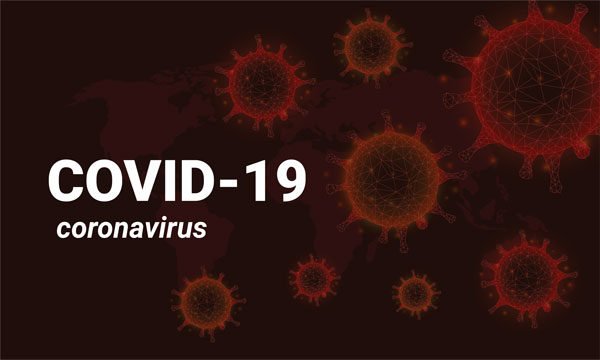The Common Symptoms of COVID-19 for Disability Claims
The common symptoms of COVID-19, which is caused by the novel coronavirus, can include:
- Fever,
- Chills,
- Body aches,
- Dry cough,
- Headaches, and
- Breathing problems.
If you or a loved one have any of these symptoms, COVID-19 testing and a visit to the emergency room is a must.
The Newly Reported Symptoms of Coronavirus
It seems like every day the news brings word of new disabling symptoms and complications of COVID-19. In the majority of cases, COVID-19 is a respiratory infection that causes shortness of breath and respiratory distress. Physicians now understand that COVID-19 can infect cells outside the respiratory tract and can cause a multitude of complications, that can be seen individually or in combination.
Disability Impact for Blood Clotting Complications Related to Disabilities
COVID-19 is causing in some patients, like actor Nick Cordero, blood hypercoagulability or clotting. That can cause blockages, which led to the amputation of Mr. Cordero’s leg. The clots can also cause strokes and cardiac complications.
Disability Impact for Cardiac Complications
The cardiac complications of COVID-19 can include arrhythmia, acute cardiac injury, myocarditis, cardiac arrest, and myocardial infraction. Of course, the virus can make any pre-existing cardiac conditions worse. These complications can result in heart surgery.
Disability Impact for Cognitive Consequences
COVID-19 can cause cognitive issues as a result of encephalitis, seizures or a stroke and can worsen pre-existing dementia.
Disability Impact Neurological Complications
Studies from China and France have shown that 36% of patients have neurological symptoms.
According to an article from The Conversation by Jeremy Rossman, case reports have described COVID-19 patients with:
- Guillain-Barre syndrome which is caused when the body’s immune system responds to an infection. They body mistakenly attacks nerve cells which, in turn, causes muscle weakness and eventually paralysis.
- Encephalitis, which is brain inflammation and swelling,
- Stroke, particularly in healthy younger individuals,
- Seizures,
- Movement disorders,
- Change in consciousness.
It is thought that the infection of the neurons of the nose can allow the virus to spread from the respiratory tract to the brain or that these neurological disorders are cause by the strong reaction of the immune system.
Disability Impact for Pulmonary Complications
COVID-19 can cause acute respiratory distress syndrome (ARDS) which damages the walls of the air sacs (alveolus) in the lungs. These air sacs help oxygen pass into our red blood cells. The virus can damage both the wall and lining of the cells of these sacs and capillaries. The result is a thickening of the alveolus and capillairies that cause thickness that impairs your ability to breathe.
Disability Impact for Psychological and Psychiatric Complications
ICU delirium, depression, anxiety and panic attacks and post-traumatic stress disorder (PTSD) have been reported in those with severe cases of COVID-19 and those who have been on a ventilator.
The inability to give people hugs or to socialize because of the social distancing guidelines or the fear of contagion can cause depression, anxiety and other psychiatric problems.
You and your family member may feel like you have been through a war but only those who have had COVID-19 understand that war like experience which can cause PTSD.
This can be problematic because many disability policies have a mental/nervous policy limitation on how long benefits are to be paid for psychological conditions, even if caused by a physical problem, like COVID-19.
The Complications of Treatment for COVID-19
We are only beginning to hear of the complications from the treatment of COVID-19. The most common treatment for those who are desperately ill with COVID-19 is to be hooked up to a mechanical ventilator. That can mean the difference between life and death but there are physical and psychological effects from treatment.
Unfortunately, patients with COVID-19 typically stay on ventilators for prolonged periods of time which increase the likelihood of complications.
Research has shown that for even a year after leaving in intensive care unit, people will experience physical problems, Alzheimer’s like cognitive deficits and even post-traumatic stress disorder.
Getting Short Term Disability Benefits for COVID-19
While testing for COVID-19 is limited, many short- and long-term disability carriers will demand to see positive COVID-19 testing and documentation consistent with the presentation of COVID-19. Your physician should document the diagnosis and your restrictions, including medical quarantine, to establish your entitlement to short-term disability benefits.
Getting Long Term Disability Benefits for COVID-19
Many with COVID-19 recover and returned to their normal lives and work. However, there is a subset of COVID-19 patients that will probably experience long term and significant residuals problems that may qualify them for their long-term disability insurance benefits.
The Law Office of Nancy Cavey can Help Those with COVID-19 and COVID-19 Complications Get the Disability Insurance Benefits They Deserve
Nancy was in New York City at the beginning of the pandemic. She knows, firsthand, how overwhelmed the hospitals were in New York and she saw medical providers on the frontline day in and day out putting their lives at risk to save others.
This is has been repeated in every community across the United States and the world.
She, like you, have friends and colleagues who had been diagnosed with COVID-19 and some, unfortunately, who have passed away from this disease or its complication.
If you have questions about a COVID-19 disability insurance claim, contact us today.
Nancy offers phone and video consultations to answer your questions. She is here to help you and your family members get the disability insurance benefits they deserve. Call 727-894-3188 for free consultation.
Together and united we will overcome this pandemic!





